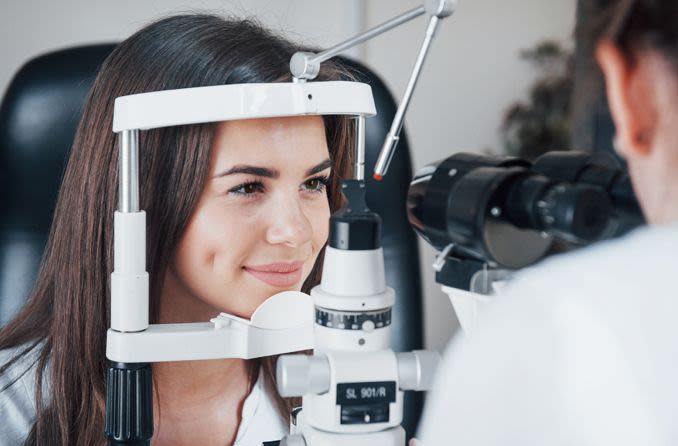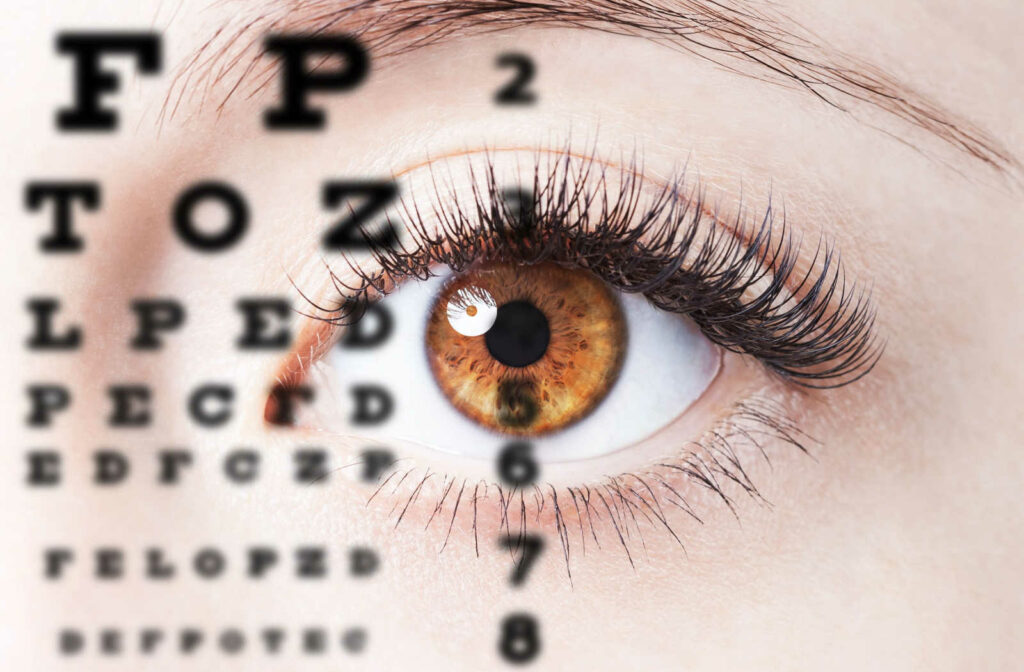All Categories
Featured
Your diet regimen has a direct impact on your total health, including the health of your eyes. While genes and age play substantial roles in vision, the nutrients you take in can help protect your eyes and lower the threat of creating common eye problems. Right here's a closer look at just how nourishment affects eye health and which foods to focus on for preserving clear vision.
Nutrients That Assistance Eye Wellness
Vitamin A. Important for preserving the health of the cornea and helping in low-light vision, vitamin A likewise helps avoid night blindness. Rich sources of vitamin A consist of carrots, sweet potatoes, and leafy environment-friendly vegetables.
Lutein and Zeaxanthin. These anti-oxidants, located in the macula of the eye, play an essential role in filtering system harmful blue light and securing the eyes from oxidative stress and anxiety. Foods like kale, spinach, and eggs are plentiful in lutein and zeaxanthin.
![]()
Vitamin C. This effective anti-oxidant sustains the health and wellness of eye capillary and might reduce the risk of cataracts and macular degeneration. Include oranges, kiwis, strawberries, and bell peppers into your diet regimen to increase your vitamin C intake.
Vitamin E. Vitamin E aids shield cells in the eyes from oxidative damage. Nuts, seeds, and veggie oils are excellent resources.
Omega-3 Fat. Omega-3s are essential for retinal feature and can assist protect against completely dry eye syndrome. They are generally located in fatty fish such as salmon and sardines, in addition to in plant-based resources like flaxseeds and chia seeds.
Zinc. Zinc adds to keeping the retina's health and aids transportation vitamin A from the liver to the eyes. Foods high in zinc include oysters, beef, and fortified cereals.
Eye Conditions Linked to Poor Nourishment
![]()
Macular Deterioration: A diet regimen deficient in antioxidants and omega-3 fats may enhance the risk of age-related macular deterioration (AMD)
Cataracts: Insufficient intake of anti-oxidants like vitamin C and E can accelerate the advancement of cataracts.
Dry Eye Disorder: Poor hydration and an absence of omega-3s can intensify dry eye signs and symptoms.
Diabetic Retinopathy: High sugar intake and bad diet monitoring can add to this condition in individuals with diabetic issues.
Practical Diet Plan Tips for Eye Health
Eat the Rainbow: Take in a variety of colorful fruits and veggies to ensure a broad spectrum of essential nutrients.
Incorporate Healthy Fats: Consist of sources of omega-3 fatty acids in your meals at the very least two times a week.
Limitation Processed Foods: Avoid excess sugar and unhealthy fats, which can add to systemic conditions that affect eye health.
Stay Hydrated: Correct hydration supports tear production and protects against dry eyes.
The Bottom Line
Your eyes rely upon you to offer the nutrients they need for optimal function. By preserving a well balanced diet regimen abundant in antioxidants, minerals, and vitamins, you can enhance your eye health and protect your vision for years ahead. Get in touch with a nutritional expert or medical care provider to create a dish strategy customized to your requirements if you're unclear where to begin. Remember, every bite you take can be a step towards more clear, much healthier vision.
Nutrients That Assistance Eye Wellness
Vitamin A. Important for preserving the health of the cornea and helping in low-light vision, vitamin A likewise helps avoid night blindness. Rich sources of vitamin A consist of carrots, sweet potatoes, and leafy environment-friendly vegetables.
Lutein and Zeaxanthin. These anti-oxidants, located in the macula of the eye, play an essential role in filtering system harmful blue light and securing the eyes from oxidative stress and anxiety. Foods like kale, spinach, and eggs are plentiful in lutein and zeaxanthin.

Vitamin C. This effective anti-oxidant sustains the health and wellness of eye capillary and might reduce the risk of cataracts and macular degeneration. Include oranges, kiwis, strawberries, and bell peppers into your diet regimen to increase your vitamin C intake.
Vitamin E. Vitamin E aids shield cells in the eyes from oxidative damage. Nuts, seeds, and veggie oils are excellent resources.
Omega-3 Fat. Omega-3s are essential for retinal feature and can assist protect against completely dry eye syndrome. They are generally located in fatty fish such as salmon and sardines, in addition to in plant-based resources like flaxseeds and chia seeds.
Zinc. Zinc adds to keeping the retina's health and aids transportation vitamin A from the liver to the eyes. Foods high in zinc include oysters, beef, and fortified cereals.
Eye Conditions Linked to Poor Nourishment

Macular Deterioration: A diet regimen deficient in antioxidants and omega-3 fats may enhance the risk of age-related macular deterioration (AMD)
Cataracts: Insufficient intake of anti-oxidants like vitamin C and E can accelerate the advancement of cataracts.
Dry Eye Disorder: Poor hydration and an absence of omega-3s can intensify dry eye signs and symptoms.
Diabetic Retinopathy: High sugar intake and bad diet monitoring can add to this condition in individuals with diabetic issues.
Practical Diet Plan Tips for Eye Health
Eat the Rainbow: Take in a variety of colorful fruits and veggies to ensure a broad spectrum of essential nutrients.
Incorporate Healthy Fats: Consist of sources of omega-3 fatty acids in your meals at the very least two times a week.
Limitation Processed Foods: Avoid excess sugar and unhealthy fats, which can add to systemic conditions that affect eye health.
Stay Hydrated: Correct hydration supports tear production and protects against dry eyes.
The Bottom Line
Your eyes rely upon you to offer the nutrients they need for optimal function. By preserving a well balanced diet regimen abundant in antioxidants, minerals, and vitamins, you can enhance your eye health and protect your vision for years ahead. Get in touch with a nutritional expert or medical care provider to create a dish strategy customized to your requirements if you're unclear where to begin. Remember, every bite you take can be a step towards more clear, much healthier vision.
Latest Posts
How Nutrition Shapes Eye Health: Key Insights
Published Jan 20, 25
0 min read
Check Out the Red Hawk Blog for Gourmet Recipes, Upcoming Events, and Gastropub News.
Published Jan 20, 25
1 min read
What’s On at Red Hawk Gastropub for What’s Coming Up.
Published Jan 20, 25
1 min read